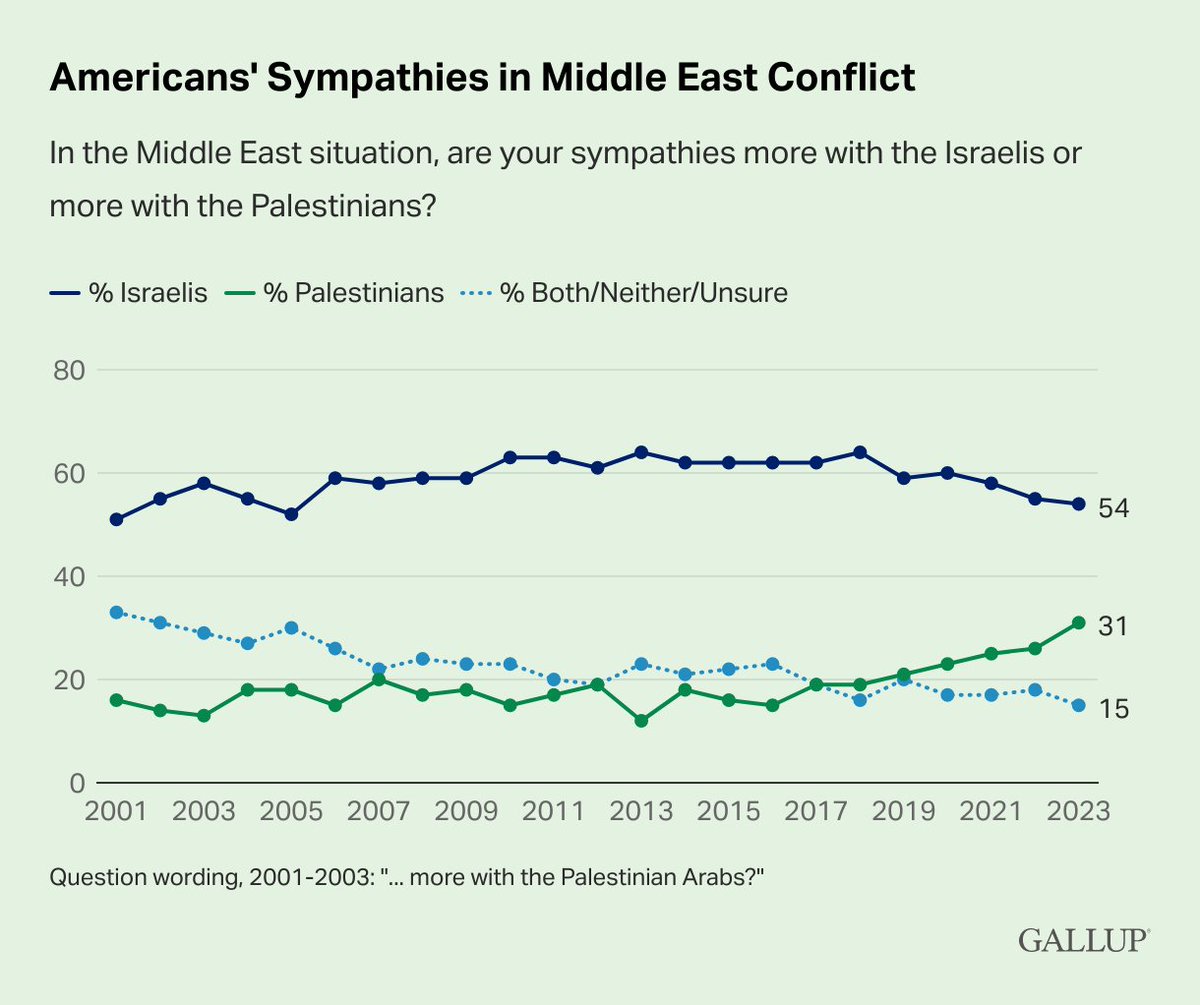One of the things I find striking in the current crisis around Gaza is how clearly it displays that the strategic decisions states (& non-state/quasi-state actors) make are often more the product of internal politics & ideology than external interests & strategic calculations. 1/
Always has it been such, of course, but the reminder is useful nonetheless.
Hamas opens the crisis with horrific violence which moves them away from any concrete goals, but may have been internally necessary to reassure supporters they were still committed and capable. 2/
Hamas opens the crisis with horrific violence which moves them away from any concrete goals, but may have been internally necessary to reassure supporters they were still committed and capable. 2/
That puts their external coalition partners (Hezbollah and Iran) as I read it, in a bind; these aren't good circumstances for them to press Israel, but if they do nothing it discredits them internally.
So they seek 'minimum acceptable demonstrations' for internal politics. 3/
So they seek 'minimum acceptable demonstrations' for internal politics. 3/
But of course those demonstrates come with a risk of losing control of escalation which - again, my read here - these actors do not want.
If Hezbollah 'wanted in' on this, the moment to do that was 10/8, before Israeli reserves were all fully mobilized. 4/
If Hezbollah 'wanted in' on this, the moment to do that was 10/8, before Israeli reserves were all fully mobilized. 4/
Meanwhile Israel's response strikes me as a product of political dysfunction: airstrikes that spend down international support, while dithering on ground operations as that support dwindles.
Yet ground ops there must be, to accomplish the stated aims; only the cost goes up. 5/
Yet ground ops there must be, to accomplish the stated aims; only the cost goes up. 5/
Meanwhile, the United States responds with strong support for Israel: military aid, plus a strong signal of a military commitment should the conflict widen.
I've long felt the USA needed to reassess its relationship with Israel in terms of its strategic interests...6/
I've long felt the USA needed to reassess its relationship with Israel in terms of its strategic interests...6/
... on the one hand, Israel is not always a reliable friend; Israel didn't join anti-Russia sanctions and Israeli aid to Ukraine has been very limited. And the value of engagement in the region itself is declining over time due to the declining importance of its oil. 7/
Meanwhile friendship with Israel imposes costs - immediate ones in money & deployments but also reputational costs: treatment of Palestinians & Netanyahu's internal policy both conflict w/ the image of the USA as the defender of democracy & the rules-based international order. 8/
But that argument that the 'juice isn't worth the squeeze' on Israel doesn't go anywhere and won't go anywhere because large and politically important constituencies in both parties support Israel and internal politics rule questions of strategy. 9/ 

With a simple majority of voters saying they sympathize more with Israel...politicians will follow.
That could change, but it won't be because of hard-nosed reassessments of American strategy, but because of shifts among the voters, probably on primarily moral grounds. 10/
That could change, but it won't be because of hard-nosed reassessments of American strategy, but because of shifts among the voters, probably on primarily moral grounds. 10/
None of which is to say classic neo-realist analysis is useless; in the long-run, states do tend to conform to those behaviors. But in the short run, domestic political concerns dominate as surely in autocracies as in democracies (but with less transparency in the former). 11/
As always, my position remains:
1) The intentional or indiscriminate targeting of civilians is wrong.
2) All parties should abide by the laws of armed conflict.
3) Being a victim of a war crime does not give leave to perpetrate one.
4) This conflict is grievously awful.
/end
1) The intentional or indiscriminate targeting of civilians is wrong.
2) All parties should abide by the laws of armed conflict.
3) Being a victim of a war crime does not give leave to perpetrate one.
4) This conflict is grievously awful.
/end
• • •
Missing some Tweet in this thread? You can try to
force a refresh

 Read on Twitter
Read on Twitter



